Toward targeting B cell cancers with CD4+ CTLs: identification of a CD19-encoded minor histocompatibility antigen using a novel genome-wide analysis
- PMID: 19001137
- PMCID: PMC2585855
- DOI: 10.1084/jem.20080713
Toward targeting B cell cancers with CD4+ CTLs: identification of a CD19-encoded minor histocompatibility antigen using a novel genome-wide analysis
Abstract
Some minor histocompatibility antigens (mHags) are expressed exclusively on patient hematopoietic and malignant cells, and this unique set of antigens enables specific targeting of hematological malignancies after human histocompatability leucocyte antigen (HLA)-matched allogeneic stem cell transplantation (allo-SCT). We report the first hematopoietic mHag presented by HLA class II (HLA-DQA1*05/B1*02) molecules to CD4(+) T cells. This antigen is encoded by a single-nucleotide polymorphism (SNP) in the B cell lineage-specific CD19 gene, which is an important target antigen for immunotherapy of most B cell malignancies. The CD19(L)-encoded antigen was identified using a novel and powerful genetic strategy in which zygosity-genotype correlation scanning was used as the key step for fine mapping the genetic locus defined by pairwise linkage analysis. This strategy was also applicable for genome-wide identification of a wide range of mHags. CD19(L)-specific CD4(+) T cells provided antigen-specific help for maturation of dendritic cells and for expansion of CD8(+) mHag-specific T cells. They also lysed CD19(L)-positive malignant cells, illustrating the potential therapeutic advantages of targeting this novel CD19(L)-derived HLA class II-restricted mHag. The currently available immunotherapy strategies enable the exploitation of these therapeutic effects within and beyond allo-SCT settings.
Figures
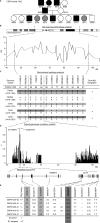
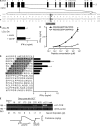

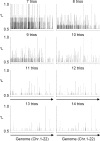
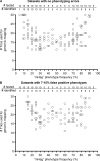
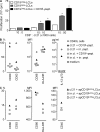
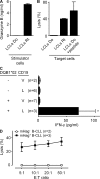
Similar articles
-
The PANE1 gene encodes a novel human minor histocompatibility antigen that is selectively expressed in B-lymphoid cells and B-CLL.Blood. 2006 May 1;107(9):3779-86. doi: 10.1182/blood-2005-08-3501. Epub 2006 Jan 3. Blood. 2006. PMID: 16391015 Free PMC article.
-
Towards effective and safe immunotherapy after allogeneic stem cell transplantation: identification of hematopoietic-specific minor histocompatibility antigen UTA2-1.Leukemia. 2013 Mar;27(3):642-9. doi: 10.1038/leu.2012.277. Epub 2012 Oct 1. Leukemia. 2013. PMID: 23079962 Free PMC article.
-
The human cathepsin H gene encodes two novel minor histocompatibility antigen epitopes restricted by HLA-A*3101 and -A*3303.Br J Haematol. 2006 Aug;134(4):406-16. doi: 10.1111/j.1365-2141.2006.06205.x. Epub 2006 Jul 4. Br J Haematol. 2006. PMID: 16822283
-
Identification of CD19 and CD20 peptides for induction of antigen-specific CTLs against B-cell malignancies.Clin Cancer Res. 2005 Feb 15;11(4):1629-38. doi: 10.1158/1078-0432.CCR-04-1612. Clin Cancer Res. 2005. PMID: 15746068
-
Targeting haematopoietic-specific minor histocompatibility antigens to distinguish graft-versus-tumour effects from graft-versus-host disease.Best Pract Res Clin Haematol. 2008 Sep;21(3):543-57. doi: 10.1016/j.beha.2008.06.001. Best Pract Res Clin Haematol. 2008. PMID: 18790454 Review.
Cited by
-
Diverse patterns of T-cell response against multiple newly identified human Y chromosome-encoded minor histocompatibility epitopes.Clin Cancer Res. 2010 Mar 1;16(5):1642-51. doi: 10.1158/1078-0432.CCR-09-2701. Epub 2010 Feb 16. Clin Cancer Res. 2010. PMID: 20160060 Free PMC article.
-
Minor histocompatibility antigens and the maternal immune response to the fetus during pregnancy.Am J Reprod Immunol. 2013 Apr;69(4):304-14. doi: 10.1111/aji.12075. Epub 2013 Feb 8. Am J Reprod Immunol. 2013. PMID: 23398025 Free PMC article. Review.
-
Strategies for the identification of T cell-recognized tumor antigens in hematological malignancies for improved graft-versus-tumor responses after allogeneic blood and marrow transplantation.Biol Blood Marrow Transplant. 2015 Jun;21(6):1000-7. doi: 10.1016/j.bbmt.2014.11.001. Epub 2014 Nov 20. Biol Blood Marrow Transplant. 2015. PMID: 25459643 Free PMC article. Review.
-
Allo-reactive T cells for the treatment of hematological malignancies.Mol Oncol. 2015 Dec;9(10):1894-903. doi: 10.1016/j.molonc.2015.10.014. Epub 2015 Oct 24. Mol Oncol. 2015. PMID: 26578450 Free PMC article. Review.
-
Exploiting T cells specific for human minor histocompatibility antigens for therapy of leukemia.Immunol Cell Biol. 2011 Mar;89(3):396-407. doi: 10.1038/icb.2010.124. Epub 2011 Feb 8. Immunol Cell Biol. 2011. PMID: 21301477 Free PMC article. Review.
References
-
- Parkin, D.M., F. Bray, J. Ferlay, and P. Pisani. 2005. Global cancer statistics, 2002. CA Cancer J. Clin. 55:74–108. - PubMed
-
- Goulmy, E. 1997. Human minor histocompatibility antigens: new concepts for marrow transplantation and adoptive immunotherapy. Immunol. Rev. 157:125–140. - PubMed
-
- de Bueger, M., A. Bakker, J.J. van Rood, F. Van der Woude, and E. Goulmy. 1992. Tissue distribution of human minor histocompatibility antigens. Ubiquitous versus restricted tissue distribution indicates heterogeneity among human cytotoxic T lymphocyte-defined non-MHC antigens. J. Immunol. 149:1788–1794. - PubMed
-
- Warren, E.H., P.D. Greenberg, and S.R. Riddell. 1998. Cytotoxic T-lymphocyte-defined human minor histocompatibility antigens with a restricted tissue distribution. Blood. 91:2197–2207. - PubMed
-
- den Haan, J.M., N.E. Sherman, E. Blokland, E. Huczko, F. Koning, J.W. Drijfhout, J. Skipper, J. Shabanowitz, D.F. Hunt, and V.H. Engelhard. 1995. Identification of a graft versus host disease-associated human minor histocompatibility antigen. Science. 268:1476–1480. - PubMed
Publication types
MeSH terms
Substances
LinkOut - more resources
Full Text Sources
Other Literature Sources
Research Materials

